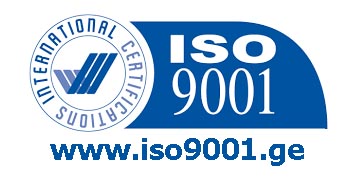Make sure to plan the work on 2 stages: Development and implementation of Quality Management System and Certification of the Quality Management System.
Why ISO 9001?
ISO 9000 - a series of international standards, which describe the requirements for a quality management system of organizations and enterprises.
ISO 9000 series of standards developed by the Technical Committee 176 (TC 176) of the International Organization for Standardization. The standards are based on the ideas and positions of the theory of total quality management (TQM).
Compliance with ISO 9001: 2015 demonstrates a certain level of reliability of the provider and the quality factor of his company. From the point of view of modern companies, compliance with the requirements of ISO 9001: 2015 - the minimum level, which makes it possible to enter the market.
certificate of conformity himself ISO 900: 2015 is an external independent confirmation of the achievement standard.
The purpose of the ISO 9000 series of standards - stable operation of the documented quality management system products.
The initial focus of the ISO 9000 series of standards was precisely on the relationship between the companies in the form of consumer-supplier. With the adoption in 2000, the third version of the ISO 9000 standards, more attention has been paid to the organization's ability to meet the requirements of all stakeholders: owners, employees, society, customers, suppliers
To date, one of the most popular tools, trusted by consumers is certified for compliance with ISO 9001: 2015.
The main changes in ISO 9001: 2015 are as follows:
• changes in the structure of the standard;
• explicit requirement applying a risk-based thinking in order to maintain and improve the understanding and application of the process approach to management;
• attention to the context of the organization, the needs and expectations of stakeholders;
• more flexibility in regard to the quality management system documentation;
• greater emphasis on the applicability of the standard to services; • explicit requirement to determine the area of application of the QMS; • more requirements to senior management;
• greater emphasis on achieving the planned results to improve customer satisfaction;
• Less prescriptive requirements.
